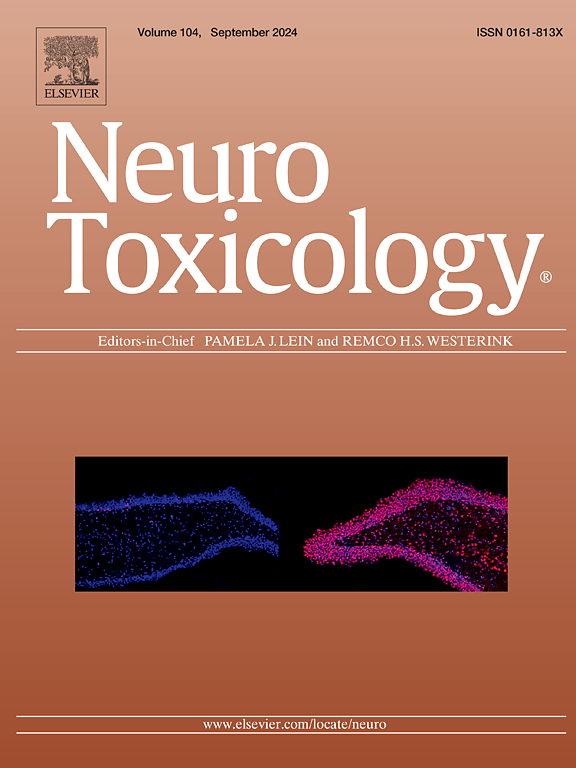The effect of wildfire smoke exposure on student performance: A nationwide study across two decades (2000–2020) and over 40 million students in Brazil
IF 3.9
3区 医学
Q2 NEUROSCIENCES
引用次数: 0
Abstract
The impact of wildfire smoke exposure on public health has been extensively studied, yet its potential consequences on academic performance remain relatively unexplored, particularly in the context of fire-prone regions, such as Brazil. We conducted a nationwide study of more than 40 million high school students in Brazil who took the National High School Exam (ENEM) between 2000 and 2020. We used mixed-effects regression models with state-specific random intercepts to examine the associations between the wildfire events and academic performance among Brazilian students. We accounted for multiple covariates, including socioeconomic status, spatiotemporal factors, air pollutants, and weather variables. We also explored the effect modification by exam subject (general subjects and essay), school management (private and public schools), location (urban and rural schools), and time period. Our findings suggest that increased wildfire events are associated with lower academic performance in both essay and general subjects. After adjustments for the covariates, the primary analysis results indicate a negative impact of wildfires on essay writing, with an estimated coefficient of −0.09 (95 % CI: −0.13; −0.05) with 100 wildfire records increase. Similarly, an increase of 100 wildfire records per year corresponded to a decrease of 0.10 (95 % CI: 0.06; 0.11) points for general subjects. This effect on academic performance was associated with a reduction of 0.33 % (95 %CI: 0.31 %; 0.34 %) in essay and 0.54 % (95 %CI: 0.52 %; 0.56 %) in general subjects. Our findings highlight the need for further attention to the influence of wildfire smoke exposure on student academic performance, suggesting that even small associations at the individual level could have broader implications for public health and education policies.
野火烟雾暴露对学生表现的影响:一项为期20年(2000-2020年)的全国性研究,涉及巴西4000多万名学生。
野火烟雾暴露对公众健康的影响已得到广泛研究,但其对学业成绩的潜在影响仍相对未被探索,特别是在火灾易发地区,如巴西。我们在2000年至2020年期间对巴西4000多万参加国家高中考试(ENEM)的高中生进行了一项全国性研究。我们使用混合效应回归模型和各州特定的随机截点来检验巴西学生的野火事件和学习成绩之间的关系。我们考虑了多个协变量,包括社会经济状况、时空因素、空气污染物和天气变量。我们还探讨了考试科目(普通科目和作文)、学校管理(私立和公立学校)、地点(城市和农村学校)和时间段对效果的影响。我们的研究结果表明,野火事件的增加与论文和普通科目的学习成绩下降有关。对协变量进行调整后,初步分析结果表明,野火对论文写作有负面影响,估计系数为-0.09 (95% CI: -0.13;-0.05),增加了100条野火记录。同样,每年增加100次野火记录对应于减少0.10 (95% CI: 0.06;普通科目0.11分。这种对学习成绩的影响与0.33%的降低相关(95%CI: 0.31%;0.34%), 0.54% (95%CI: 0.52%;0.56%)。我们的研究结果强调需要进一步关注野火烟雾暴露对学生学习成绩的影响,这表明即使是个人层面的小关联也可能对公共卫生和教育政策产生更广泛的影响。
本文章由计算机程序翻译,如有差异,请以英文原文为准。
求助全文
约1分钟内获得全文
求助全文
来源期刊

Neurotoxicology
医学-毒理学
CiteScore
6.80
自引率
5.90%
发文量
161
审稿时长
70 days
期刊介绍:
NeuroToxicology specializes in publishing the best peer-reviewed original research papers dealing with the effects of toxic substances on the nervous system of humans and experimental animals of all ages. The Journal emphasizes papers dealing with the neurotoxic effects of environmentally significant chemical hazards, manufactured drugs and naturally occurring compounds.
 求助内容:
求助内容: 应助结果提醒方式:
应助结果提醒方式:


